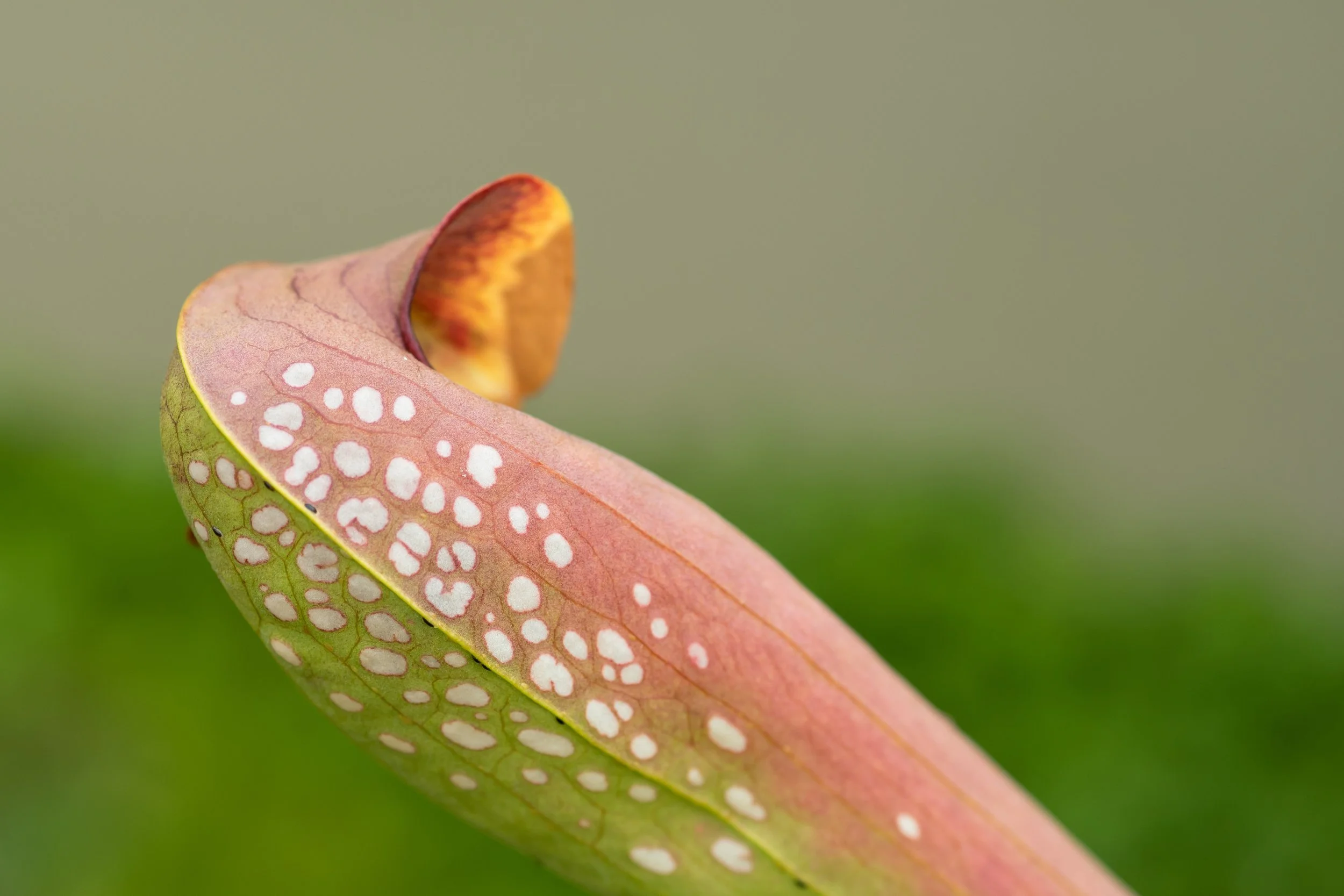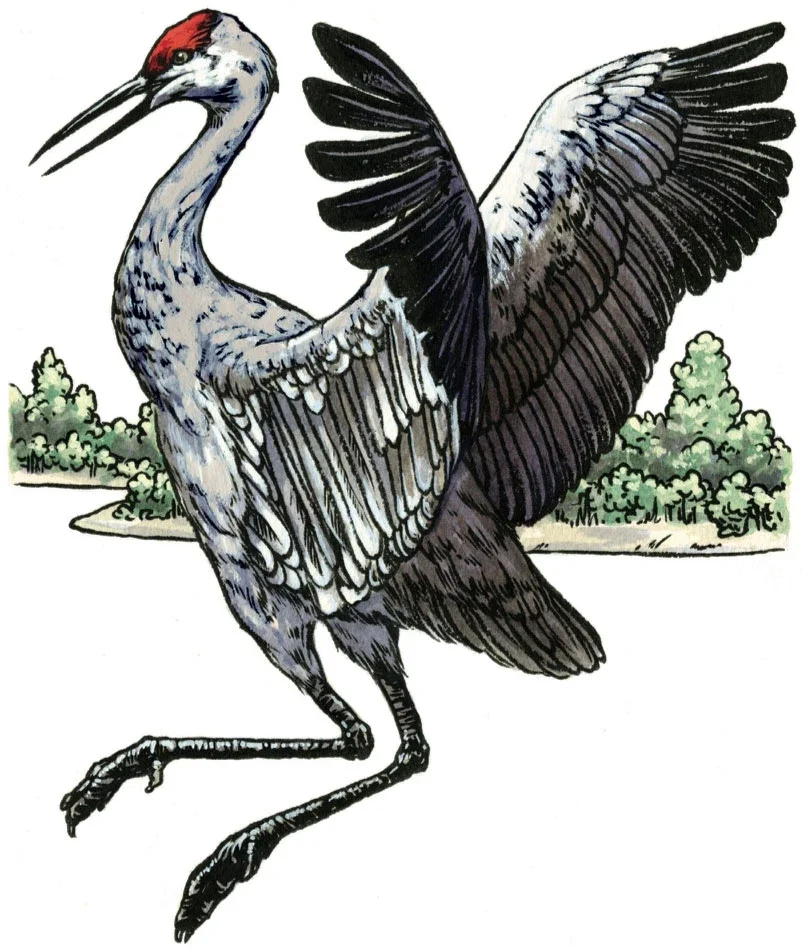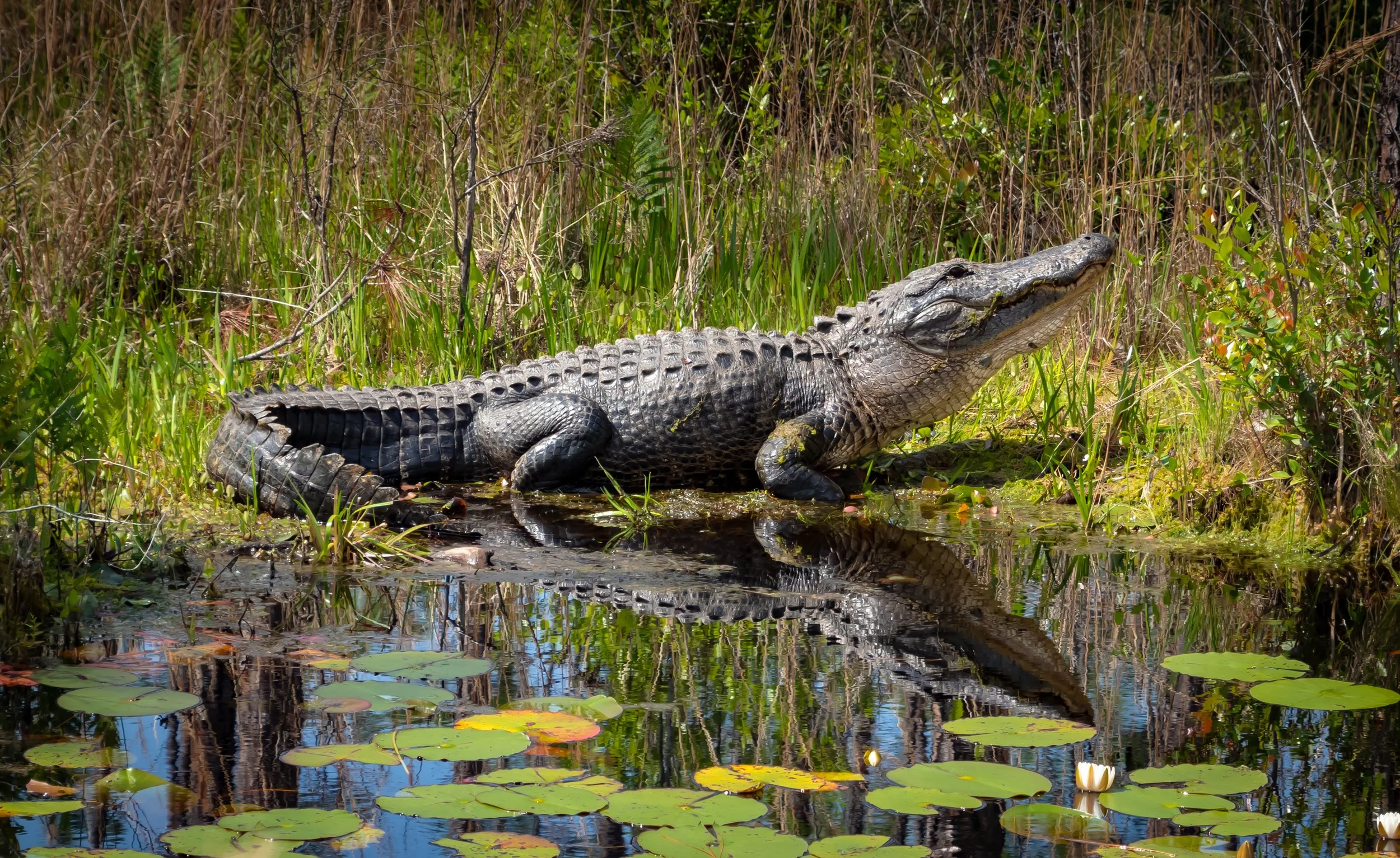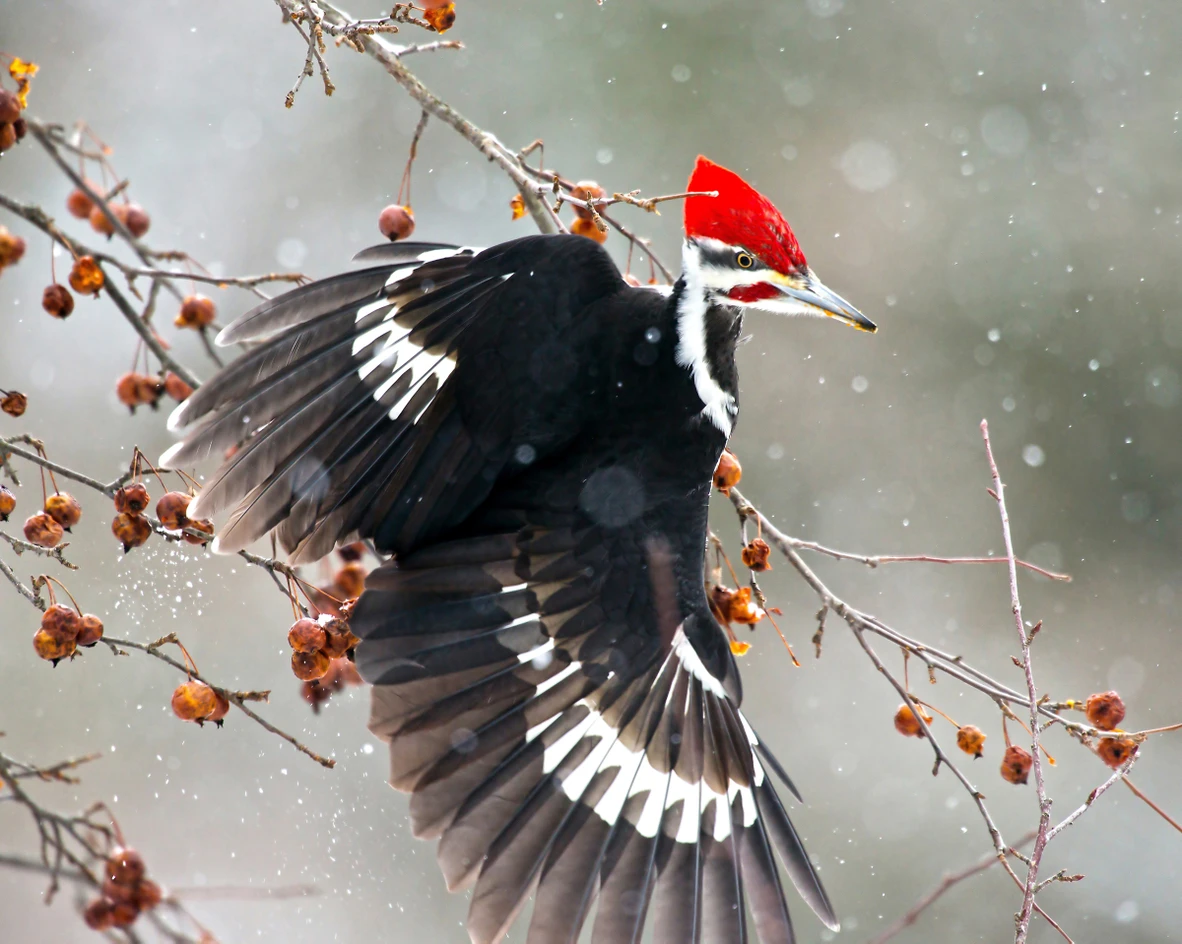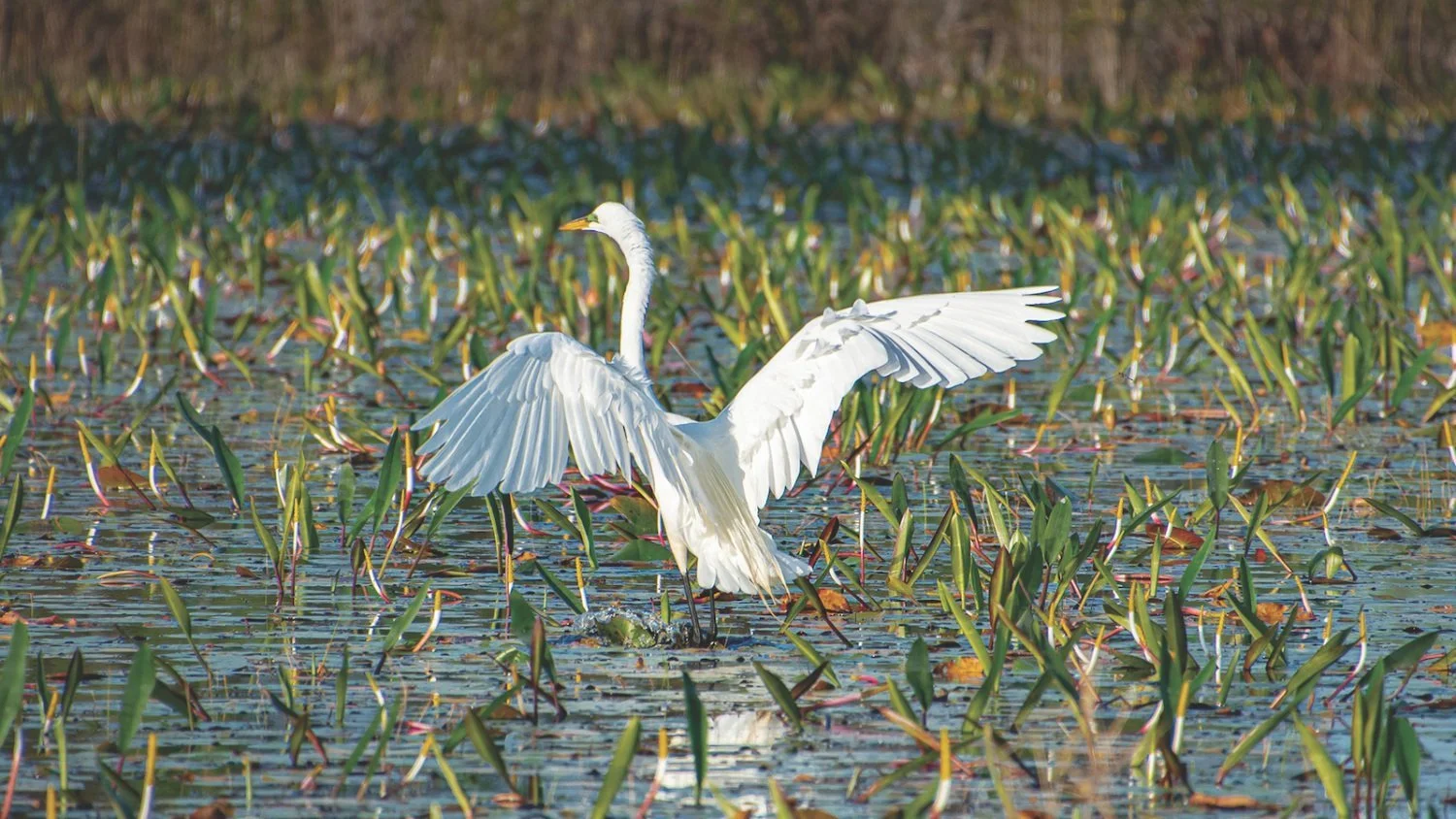Safari Journal - September 2025
Okefenokee National Wildlife Refuge
(Florida-Georgia)
- Worldwide Safari Guide
One of the great primitive wildernesses of the world—a dark, brooding cypress swamp with wet prairie openings, its only sounds those of natural communications: musical frogs’ chorusing, owls twittering, minnows splashing, wildcats’ screams, wind blowing through rain-spattered trees, herons squawking. Alligators bellow for mates, and wild turkeys gobble for theirs.
Altogether some 235 bird species, 50 mammals, 64 reptiles, 37 amphibians, and thousands of plants make their homes on these 619 square miles (1,600 km2) covering adjoining parts of the southeastern states of Florida and Georgia, and named for the Seminole word meaning “Land of Trembling Earth.” The name denotes what happens when 15-foot-deep (5-m) peat beds explode continually from a vast bog of ancient geologic origin—once part of the ocean floor—sending to the water’s surface new islands which quake at a footfall even after they are firm enough to support tall trees.
Crimson-crowned Florida sandhill cranes
By - The Audubon Society
Sandhill Cranes nesting in north migrate long distances (some cross the Bering Straits every spring and fall, en route to and from nesting grounds in Siberia). Those from the southern part of the main breeding range, in the northern and western parts of the Lower 48 states, migrate shorter distances; in recent years they have shown a trend toward migrating later in fall and earlier in spring, and some are now overwintering farther north than in the past. Populations nesting in Mississippi, Florida, and Cuba do not migrate.
Primitive Reptiles
One of the largest alligator populations anywhere is here—10,000 or so of these primitive reptiles, once close to extinction, that grow up to 13 feet (4+ m) long, and whose offsprings’ sex is determined by their temperature as incubating eggs in the nest.
Pileated Woodpecker
Pileated Woodpecker - Audubon Society
A big, dashing bird with a flaming crest, the largest woodpecker in North America (except the Ivory-bill, which is almost certainly extinct). Excavating deep into rotten wood to get at the nests of carpenter ants, the Pileated leaves characteristic rectangular holes in dead trees. This species became rare in eastern North America with clearing of forests in centuries past, but has gradually increased in numbers again since about the beginning of the 20th century.
Flame-crested pileated woodpeckers a foot long (30+ cm) hammer for grubs on moss-hung cypresses. Endangered red-cockaded woodpeckers search out tall pines so old their centers have turned to soft “red-hearts” ideal for nest hollows. As they drill holes for them, sap runs down the trunks, deterring predation by hungry snakes.
Photo: A white heron dries its wings in the Okefenokee Swamp, a vast wildlife refuge currently under threat of mining near its boundaries. Credit: Deborah Ferrin via Shutterstock
Environment America
New titanium mine threatens largest wildlife refuge in eastern U.S.
By: Mary Katherine Moore
The Okefenokee is one of the largest intact freshwater ecosystems in the world.
In the Okefenokee, threatened species are at home -- from wood storks to indigo snakes to red-cockaded woodpeckers.
It's one of the only certified dark sky parks in the southeastern United States.
Mining near the Okefenokee could pollute and permanently alter this ecosystem.
That's why we were thrilled when a land deal halted the proposed titanium dioxide mine near the Okefenokee. 8,000 acres will be conserved and protected -- for now. But this only protects part of the Okefenokee's eastern boundary, and we can't let future strip mining proposals threaten this special place.
It could drain some of the water from the swamp -- already struggling with drought, the Okefenokee couldn't handle losing more of its water. Draining the water could trigger uncontrollable wildfires, burning up this critical habitat. To make matters worse, titanium dioxide isn't some critically important mineral. It's used to make things like powdered donuts and toothpaste look "whiter."
We shouldn't destroy this incredible ecosystem just to make things look a little whiter. We need Gov. Kemp to do everything he can to stop mining from destroying the Okefenokee. We're calling on the governor to push for permanent protections for the entire eastern boundary of the Okefenokee and support a UNESCO world heritage designation.
Don't let mining devastate a place like nowhere else in the world.
If you found these articles interesting, check back for another edition in this series. Please "like" our social media pages to be notified.
Advertisements
Tusk's approach to conservation recognizes that the long term future for wildlife and Africa's other natural resources is dependent on sustainable rural development. more... Tusk believes that if conservation is to succeed and environmental degradation to be reversed then education needs to be promoted at an early age.

